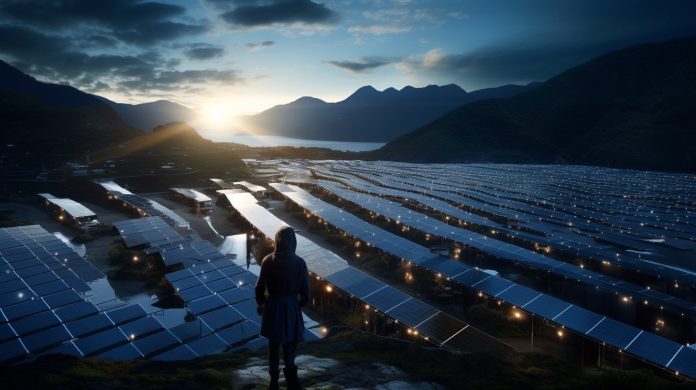A solar energy project in Western Alberta was poised to not only power 1,200 homes but innovate a new way to pay for such initiatives, say its backers. But then came the “gut-wrenching” decree by Premier Danielle Smith.
Support Read for the Cure’s critical research through these great reads.
Now the future of Western Canada’s first cooperatively financed solar farm is uncertain, following the United Conservative Party’s sudden freeze on approvals for renewable energy projects in Alberta.
The Peace Energy Cooperative, or PEC, was days away from Alberta Utilities Commission approval that would allow construction to begin on a 32-acre solar farm. Unless the UCP lifts the seven-month moratorium, the cooperative will have to convince investors to not withdraw their money.
Cooperative president Joanne Dueck was “shocked and dismayed” when she learned of the moratorium.
“It was gut-wrenching,” Dueck said. “It feels like fossil fuels get government favour. It feels like we don’t get nearly some of the same lobby power that those groups have. And we have to fight uphill to keep our quarter.”
The cooperative’s solar farm, called the Peace River Energy Project, or PREP, is slated to be located about 1.5 kilometres west of Peace River, and will power the equivalent of 1,200 homes annually, easing rates for the surrounding community. The project is a for-profit investment cooperative, meaning it would provide residual income to the 650 members who would jointly control it through a board. Shares in the cooperative cost $200.
The moratorium, which Alberta Premier Danielle Smith announced in early August, halted provincial approval for all new solar, wind and geothermal projects over one megawatt. Smith said the moratorium is needed to give the province time to evaluate the environmental impact of renewable energy projects on nearby farmland, as well as examine the process for decommissioning installations at the end of their life.
Critics scoffed at that explanation because there are thousands of abandoned oil wells and massive oilsands tailings ponds in Alberta for which there are no viable environmental and financial reclamation plans.
Smith defended the decision as necessary for maintaining a reliable power grid. “We cannot add solar and wind projects, which are intermittent, without knowing what is going to happen when the sun isn’t shining and the wind isn’t blowing,” she said.
Critics pointed out that this explanation ignores the fact that Alberta has a nascent industry in energy storage that is now also affected by the moratorium.
The Alberta Electric System Operator, which operates Alberta’s electrical system, estimates that renewable energy powered 17 per cent of Alberta’s energy grid in 2022.
Those directly impacted by the moratorium argue that the decision likely stems from the UCP’s close ties to the oil and gas industry.
“It feels like fossil fuels get government favors,” Dueck said.
“I did feel that it was done in retaliation of some federal initiatives about carbon tax, which does make me feel like something really is broken in our government.”
Alberta New Democratic Party energy critic Nagwan Al-Guneid worked in the renewable energy industry before entering politics. She attacked the UCP for jeopardizing investment in Alberta’s renewable industry and called for an end to the moratorium.
The province didn’t consult the renewable energy industry prior to the announcement. The decision shocked Evan Wilson, the Canadian Renewable Energy Association’s vice-president of policy.
“Alberta was the home to 75 per cent of all new renewable deployments in the country,” Wilson said. “We were in the midst of a real golden age of investments. People were setting their sights on the province of Alberta to build and operate projects.”
“Once we get out of this moratorium phase, will people continue to be as excited about this province? That is a big question mark.”
A Pembina Institute report found the moratorium negatively affects 118 projects and about $33 billion dollars in total investment. Through taxes and land leases, the projects could bring in an additional $263 million annually in provincial revenue.
Wilson said the Smith government imposed the moratorium when Alberta is “in the midst of an ongoing affordability crisis in the electricity sector.”
Alberta’s electricity prices more than doubled in July from a year earlier to a record high, the biggest gap from the Canadian average in four decades. Alberta’s prices jumped by 128 per cent, which increased the national average by 11.7 per cent, Statistics Canada reported.
“Wind and solar are the lowest cost generation that we can bring onto the grid,” Wilson said.
“Looking at the impact on the average Albertan, we really think that this decision is doing nothing to address affordability concerns because it is not allowing us to bring on more generation and reduce the overall cost of electricity.”
The Peace Energy Cooperative project would create about 50 “direct and indirect” jobs during eight months of construction, and three to five permanent positions once the site is operational, say members.
The Peace River Energy Project was designed to be environmentally sustainable. The proposal plans to build the solar farm on top of native grasses, using sheep to keep the vegetation under control. There are also plans to integrate beekeeping into the solar farm.
The solar panels are easily replaceable at the end of their 25-year life cycle, which will allow the farm to operate for upwards of 50 years. An end-of-life plan has been completed following studies on the project’s ecological impact, and the cooperative is adamant that the solar farm poses no risk to the environment.
Dueck said the cooperative is determined to proceed with the solar farm because “we know that in the light of our changing climate we need to start looking at some alternatives.
“It cannot be a conversation between the economy or the environment, we have to find solutions that are both.”






